Nature Knows and Psionic Success
God provides
I tried the hot new ‘brain pill’ that promises to improve focus, mood and energy. Here’s what happened…
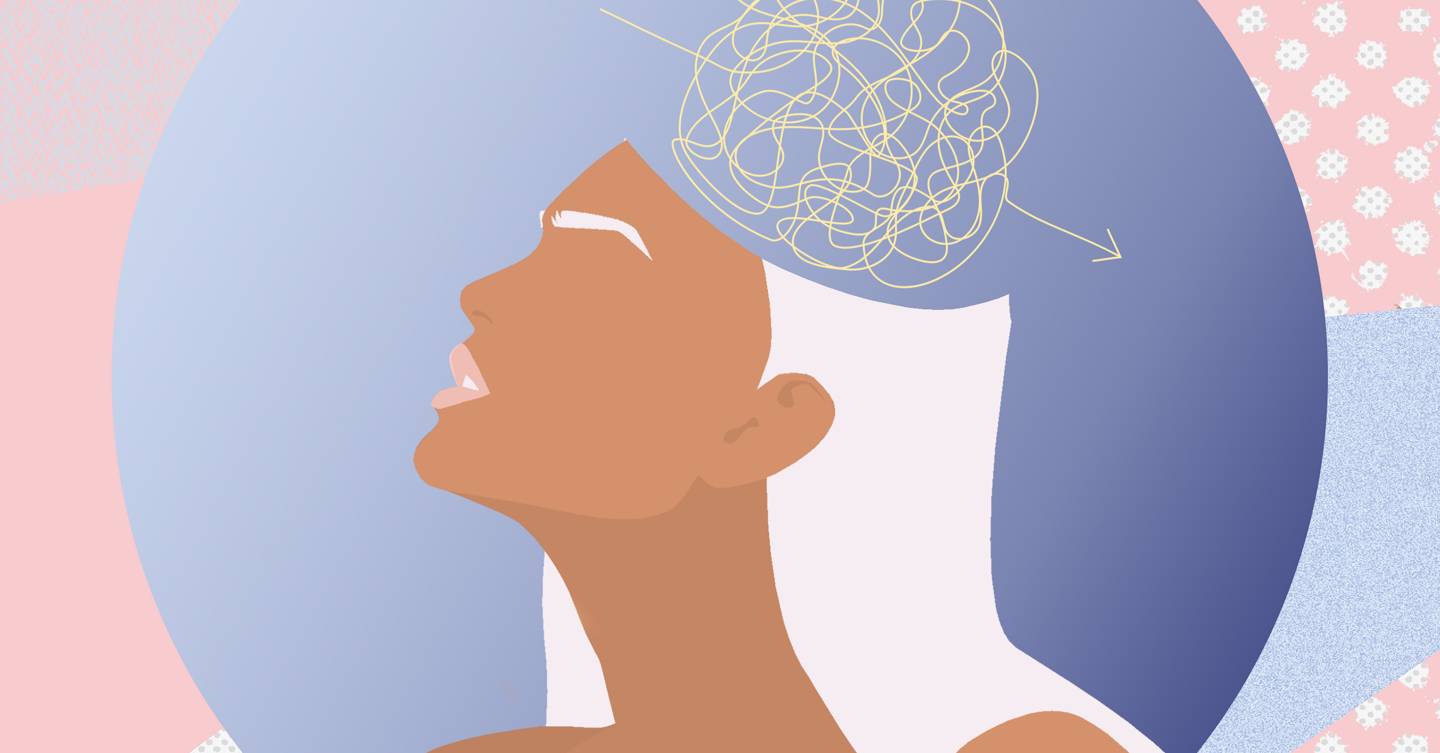
Remember the film Limitless , which saw Bradley Cooper become an absolute superhuman after discovering a magical pill that allowed him to learn countless languages, beat the stock market and be an all-round badass? If you left the cinema wishing there was a real-life, legal version of Bradley’s much-loved NZT-48 Limitless pill, you could be in luck. One company has created a range of ‘nootropic’ supplements, which they describe as a ‘natural, all-in-one brain booster’. BrainExcell tablets were developed by Ryan Maguire, who was looking for a new and natural way of enhancing his mental and physical capabilities. "Each of us has potential for greatness that knows no bounds. Self-improvement is the key to unlocking that potential," he said. "We developed BrainExcell to help you live the smart, fit and happy life that you’re working hard to achieve, now and further down the road." He has created two supplements – one to charge you up for the day and one to help you wind back down for the night. Ryan says his pills help supercharge your memory, concentration, energy, and focus. As someone who works hard and plays a lot harder, I was desperate to try them, especially after watching Limitless . My triple shot flat white at 8am just wasn’t cutting the mustard and my brain often felt fuzzy as I attempted to juggle a heavy workload and social life. You begin the day by taking the Focus (£40 for a pack), which promises to improve your mental, psychological, and physical wellbeing. It is packed with 100% natural ingredients (like ashwaganda, guarana and Korean panax ginseng extract) to help you unlock your true potential and access your mind’s deepest, most potent superpowers, with the aim of keeping you sharp, focused, and on top of your game at all […]
‘I try to only take it twice a week – I’d have a breakdown if I took it every day’: Why are so many women taking brain boosting pills at work and risking their health and sanity?

The phone on Jess Robinson’s desk flashes incessantly as a queue of ten stressed staff wait impatiently for her advice. As an IT analyst at a 1,000-strong company, Jess spends her working days rushing from one complex problem to another. And yet she manages her workload seamlessly, moving calmly from one crisis to the next while keeping a smile on her face. She’s impressively competent — but that’s not solely down to her commitment and skill. Jess, 30, admits she owes much of her unflappable attitude to something rather unexpected: an innocuous white pill. She swallows it before reaching her London office, and it enables her to stay on top of the day’s issues. The tablet Jess takes is called modafinil — a medication licensed for patients with the sleep disorder narcolepsy, but which is increasingly being bought online, without a doctor’s prescription, to improve focus and concentration. Modafinil is the most popular of a new breed of ‘smart drugs’ said to aid brain function. Studies reveal around one in 12 adults have taken smart drugs. Jess Robinson (pictured), 30, began taking modafinil two years into working as an IT analyst at a 1,000-strong company to help her stay on top of each day’s issues Studies reveal around one in 12 adults have taken smart drugs. Jess Robinson (pictured), 30, began taking modafinil two years into working as an IT analyst at a 1,000-strong company to help her stay on top of each day’s issues Taken by students desperate to boost their exam results, these prescription pills have now attracted the attention of growing numbers of high-flying professionals hoping to gain a competitive edge and apparently careless of the risks of taking a drug they don’t need without medical supervision. You may never have heard of modafinil or other […]
Salad makes your brain younger: The nutrient boost improves memory, prevents dementia, study finds
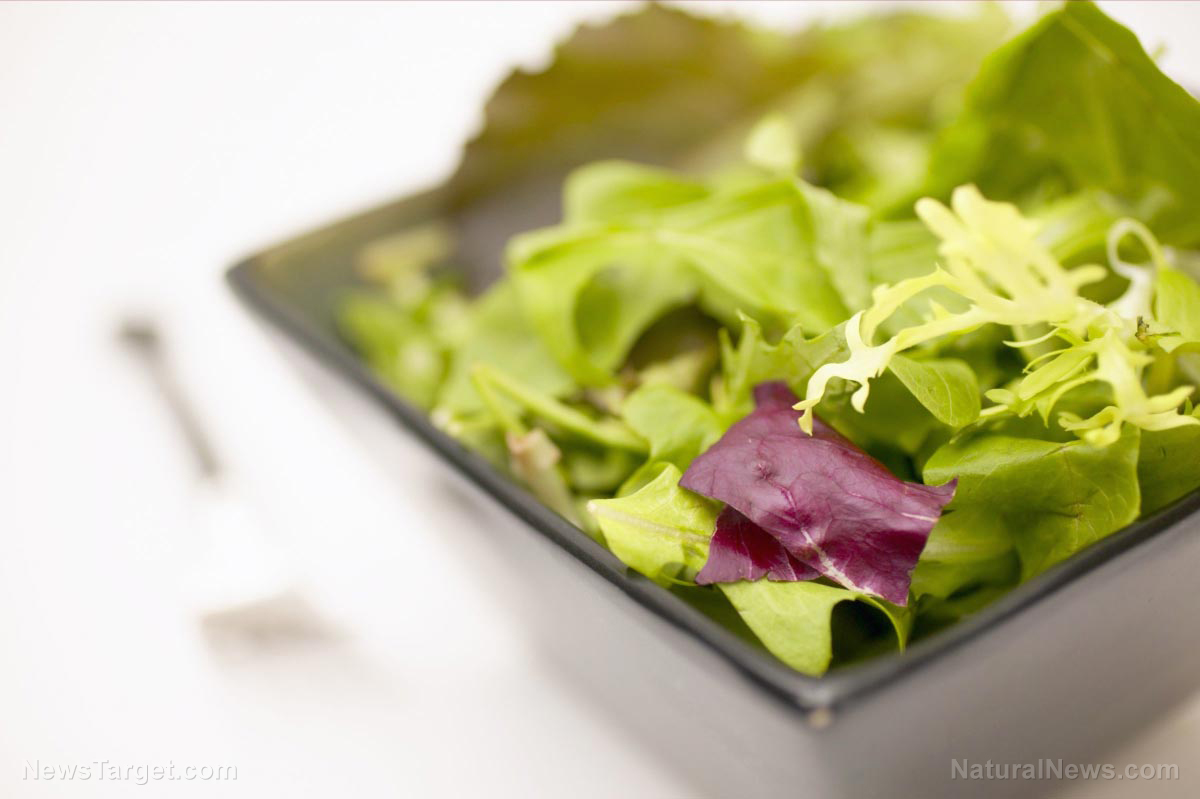
( Natural News ) You may want to start eating at least one serving of salad to make your brain younger as a study found that eating salad or a serving of leafy greens every day can enhance memory and make the brain function a decade younger , according to an article published in The Daily Mail. “Projections show sharp increases in the percentage of people with dementia as the oldest age groups continue to grow in number, so effective strategies to prevent dementia are critical,” said Martha Clare Morris, an author of the study. For the study, a team of researchers from Rush University Medical Center in Chicago examined 960 individuals with an average age of 81 who did not have dementia. They observed the participants for an average of 4.7 years. As part of the study, the participants were tasked to accomplish a survey on how frequent they ate specific foods. Moreover, their thinking and memory skills were tested every year during the study period. The questionnaire included questions on how frequent and how many servings they ate of three green, leafy vegetables – spinach , with a serving being a half cup of cooked spinach, kale , collards, or greens, half cup cooked – and a lettuce salad with a serving of one cup uncooked. Then, the participants were assigned to one out of the five groups based on how frequent they consumed green, leafy vegetables. The participants in the top serving group ate an average of approximately 1.3 servings of greens a day, while those in the lowest serving group consumed an average of 0.1 servings a day. The researchers also considered other factors that could affect brain health, such as smoking, high blood pressure, obesity, education level, and amount of physical and cognitive activities. […]
People of all ages can benefit from phosphatidylserine supplementation

( Natural News ) No matter how old you are, you will benefit from taking phosphatidylserine supplements. Phosphatidylserine is a type of fat that naturally occurs in all cells in the body, but is mostly found in the brain. It is one of the few brain supplements that has been proven safe and effective for people of all ages. Here are six ways that phosphatidylserine supplementation supports brain health : Phosphatidylserine keeps brain cells healthy – Phosphatidylserine is an important nutrient for keeping brain cells at optimal health. It is a phospholipid, which is a type of fat that has a structure that makes it both attracted to water and repelled by water. This type of structure enables phospholipids to form a phospholipid bilayer, or phospholipids arranged into two parallel layers. This layer, in turn, forms a key component of human brain cell membranes. By supporting brain cell membrane health, phosphatidylserine helps stave off toxins, pathogens, and other unwanted substances in the brain. Phosphatidylserine is also needed by neurons to conduct nerve impulses. It is also important for preserving neuroplasticity and increases brain cell fluidity, which allows cells to stay adaptable and efficiently respond to stressors. Phosphatidylserine increases neurotransmitters – Phosphatidylserine promotes the release of three key neurotransmitters: serotonin, dopamine, and acetylcholine. These neurotransmitters are responsible for almost all aspects of life – mood, stress, sleep, concentration, memory, and others. In addition, phosphatidylserine accelerates communication between brain cells for faster thinking. However, approximately 86 percent of people have low levels of these neurotransmitters. Thus, supplementing with phosphatidylserine will be helpful to increase the levels of these neurotransmitters. Phosphatidylserine decreases cortisol levels – Phosphatidylserine can prevent the effects of stress by reducing cortisol levels. Cortisol is a hormone responsible for stress, and too much of this hormone can greatly affect […]
10 Healthy Energy Drinks for a Natural Boost
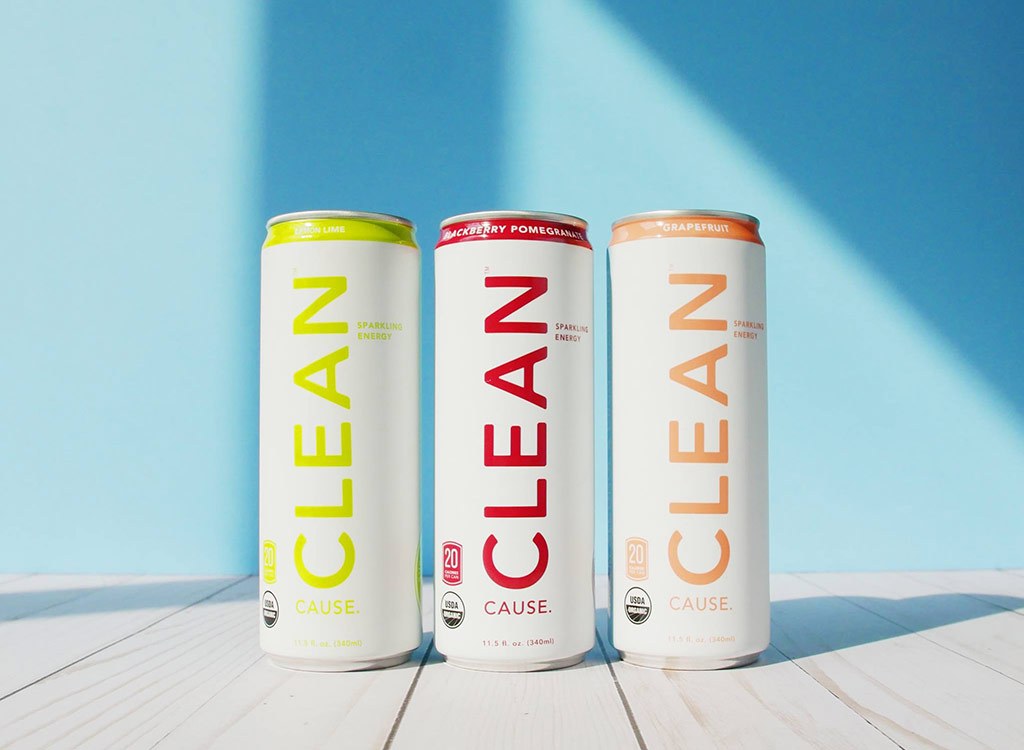
These days, not all energy drinks are the waist-widening beverages that deliver a case of the jitters and make your heart pound. A new crop of energizing sips are sparkling waters with natural fruit flavors or tea-based beverages fueled with B vitamins and brain-boosting adaptogens, like L-theanine. They’re also canned sans added sugars and zero artificial sweeteners, flavors, and colors. Some use cold-pressed vegetable and fruit juices for color and extra nutrients. How to Find the Best Energy Drinks Shutterstock But how can you ensure that what you’re drinking is going to give you the boost you need? To help you find the healthiest energy drinks on the market, we tapped Mike Roussell , PhD, nutrition expert and author of The MetaShred Diet: Your 28-Day Rapid Fat-Loss Plan. Simple. Effective. Amazing. When shopping the aisles for an energy drink, Roussell says to look for one that “Ideally has zero [sugar], but definitely less than 10 grams per 8-ounce serving. If you’re going higher than that, I would only use it prior to exercise.” When it comes to energy drinks fortified with vitamins and antioxidants, Roussell says they’re not going to make much of a difference in giving you energy. However, B vitamins are essential for converting food into energy. “B vitamins are put in a lot of energy drinks because they are needed for our body to break down and use the energy found in the foods we eat. But more B vitamins doesn’t make your body do this better and it isn’t something that you can feel,” Roussell explains. Some energy drinks also infuse certain antioxidants, minerals, and adaptogens to reduce muscle soreness, improve cognitive function, and promote calm. But Roussell reminds us that the benefits of these health boosters are limited. “Most energy drinks are underdosed and […]
Grapes have long been hailed as the “food of the goods” … they contain powerful antioxidants that protect your health

( Natural News ) Grapes, or Vitis vinifera, has a scientific name that translates to “the vine that bears wine.” The vine produces berries that are either green (also known as “white”) or red. There are seed and seedless grape varieties, but grape seeds are edible and full of nutrients . Grape juice, pulp, skin, and seeds can be used for various preparations. The health benefits of grapes Grapes and various grape products are rich in healthy antioxidants . Antioxidants are enzymes and nutrients that help prevent oxidation. This means antioxidants can neutralize free radicals, which are highly reactive ions or molecules in the human body. Antioxidants donate electrons or modulate enzymes that metabolize free radicals. Free radicals are naturally produced via metabolism due to normal physiological functions, such as a defense mechanism against pathogens. However, free radicals can sometimes be produced in excess, which means they can negatively affect DNA, lipids, and proteins and cause different diseases. Grapes also have polyphenols , and these phytochemicals are the best source of dietary antioxidants. Polyphenols offer various health benefits. The bulk of phenolic compounds in grapes can be found in the skin of the berry, and the content will often increase as the fruit ripens. Red wine and grapes are full of flavonoids (e.g., anthocyanins and catechins), phenolic acids (e.g., caffeic acid and coumaric acid), and stilbenes (e.g., resveratrol). However, red grapes contain more phenolic compounds than red wine grapes. The power of the elements : Discover Colloidal Silver Mouthwash with quality, natural ingredients like Sangre de Drago sap, black walnut hulls, menthol crystals and more. Zero artificial sweeteners, colors or alcohol. Learn more at the Health Ranger Store and help support this news site. Data from animal studies concerning phytochemicals have revealed that anthocyanins can help prevent oxidative stress. […]
Researchers CONFIRM: Natural omega-3 fatty acids prevent Alzheimer’s
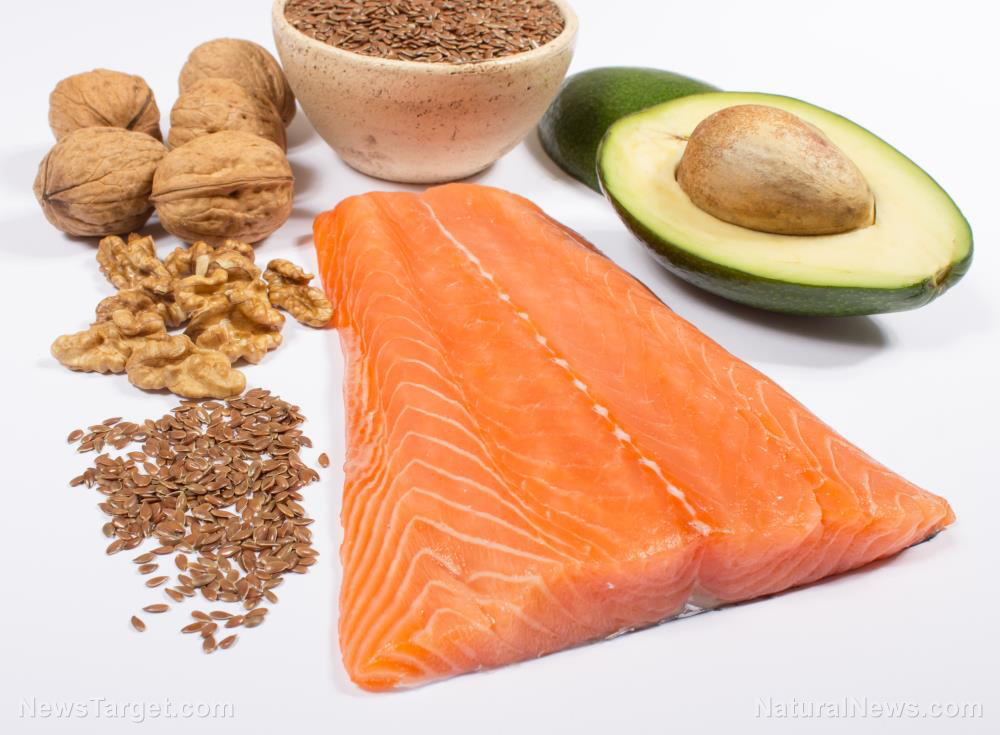
( Natural News ) Alzheimer’s disease is currently the sixth leading cause of death for Americans. It’s a devastating brain disease that impacts memory, behavior, and thinking, and although its growing prevalence has spurred a rise in research into the illness, there remains no cure. For now, the best thing you can do if you are concerned about Alzheimer’s is try to prevent it – and an important study suggests that natural omega-3 fatty acids are a valuable tool for doing so. Researchers from Charite – Universitatsmedizin Berlin studied the effects that a daily dosage of 2200 mg of omega-3 fatty acids could have on memory function over the course of six months. They were seeking a long-term prevention method that is suitable for use in older patients and easy to make a part of daily life. Because omega-3 fatty acids fit the bill and directly affect nerve cell function, they decided to take a closer look at them. The researchers found that those participants who took omega-3 fatty acids recorded greater improvements on object location memory tasks than those who were given a placebo made of sunflower oil. Although these improvements did not extend to a verbal learning test that was also administrated, the results are still quite promising. The researchers concluded: “Results from this study suggest that a long-term approach to prevention is particularly effective in preserving cognitive function in older individuals. A targeted approach involving dietary supplements can play a central role in this regard.” A bigger clinical study is needed to determine whether the improvements the researchers found can make a big enough difference in daily life. Next, they plan to investigate the effects of supplementing with a combination of vitamin B and omega-3 fatty acids. Research from Oxford University has shown that this combination […]
Reduce anxiety FAST by knowing how to breathe properly

( Natural News ) Did you know that a breathing technique can help reduce anxiety? According to Dr. Danny Penman’s article on PsychologyToday.com , mindfulness “has been clinically proven to beat depression and enhance happiness, clarity of thought, and even decision-making and creativity.” Penman added that breathing, which is the cornerstone of mindfulness, can help ease your anxiety and stress . Breathing techniques are effective since your breath reflects and amplifies your emotions. When you breathe incorrectly, you can worsen your anxiety, depression, and stress. If you’re faced with momentary stress, the body becomes tense and you breathe a little more shallowly. Shallow breaths decrease oxygen levels in the blood, which the brain interprets as stress. You start to breathe a bit faster and shallower. Your oxygen levels fall, your heart starts to race, and the brain becomes more stressed. Breathe properly to relax Proper breathing is key to countering stress. A gentle rising and falling breath can trigger the parts of the brain and nervous system that helps you calm down. Soothing hormones will flow through your body and they can help calm negative thoughts. As you start to relax, you will breathe deeper and more slowly. (Related: Yoga helps calm generalized anxiety disorder .) This exercise can help you practice proper breathing: Place a cushion under your head and lie flat on the ground. Close your eyes. Put your hands on your stomach and feel it rise and fall as you breathe in and out. Focus on the natural rhythm of your breath. Feel the air as you inhale and exhale, then relax as you breathe. After several breaths, your heart will start to slow down and beat more effectively. Mother Nature’s micronutrient secret : Organic Broccoli Sprout Capsules now available, delivering 280mg of high-density nutrition, including […]
Giving Nitro Boost to Artificial Intelligence!
Artificial Intelligence is reaching new heights everyday. Not a single week goes by without any major announcement of new problems solved by AI technology. Artificially intelligent systems already exist among us, and they have been for some time now. Despite this genuine progress, we are still a long way from human level intelligence The world has yet to see an Artificial Superintelligence (ASI) — a synthetic system that has cognitive abilities which surpass human across every relevant metric and posits a world in which a computer’s cognitive ability is superior to a human’s. As artificial intelligence continues to grow everyday, there is major question about the direction from which the next major advancement in artificial intelligence will come from? Below I have listed 5 possible areas which have the potential to take artificial intelligence to new heights. The points I have listed might not be the common points you generally hear and they might be highly fictional or optimistic but they surely contain some interesting pointers for everyone. So here are they: An artificial brain (or artificial mind ) is software and hardware with cognitive abilities similar to those of the animal or human brain. Many top researchers are already working on this side of things but I am not sure how long will it take to achieve a level where we will be able to perfectly simulate an artificial brain which functions exactly like a human brain. To theoretical neuroscientists, the key to understand how intelligence works is to recreate it inside a computer. Neuron by neuron, these whizzes hope to reconstruct the neural processes that lead to a thought, a memory, or a feeling. With a digital brain in place, scientists can test out current theories of cognition or explore the parameters that lead to a malfunctioning […]
Green tea promotes healthy teeth and gums

( Natural News ) According to a recent study, the antioxidants in green tea could be the key to preventing periodontal disease . Green tea is a popular beverage choice in Asian culture. It has been around for more than 4,000 years, and is becoming more popular in the United States. Ancient Chinese and Japanese medicine consider the consumption of green tea as a reliable cure for diseases, and it is even believed that the drink can help heal wounds. Now, recent scientific studies are starting to realize the possible health benefits of drinking green tea, especially for “weight loss, heart health[,] and cancer prevention.” Based on the latest study published in the Journal of Periodontology , the official publication of the American Academy of Periodontology (AAP), green tea consumption has another benefit. Scientists have determined that regularly drinking green tea can also help promote healthy teeth and gums. The study monitored the periodontal health of 940 men, and the results indicate that those who regularly drank green tea had better periodontal health than those who consumed less green tea. Dr. Yoshihiro Shimazaki of Kyushu University in Fukuoka, Japan, said, “It has been long speculated that green tea possesses a host of health benefits.” He continued, “And since many of us enjoy green tea on a regular basis, my colleagues and I were eager to investigate the impact of green tea consumption on periodontal health, especially considering the escalating emphasis on the connection between periodontal health and overall health.” 100% organic essential oil sets now available for your home and personal care, including Rosemary, Oregano, Eucalyptus, Tea Tree, Clary Sage and more, all 100% organic and laboratory tested for safety. A multitude of uses, from stress reduction to topical first aid. See the complete listing here , and help […]
More than just brain food: High DHA fish oils found to boost your immunity

( Natural News ) Fish oil supplements are popular for a reason. They are full of omega-3 fatty acids, which are crucial for your overall health. According to a study, aside from boosting brain health, taking fish oil with docosahexaenoic acid (DHA) daily can “support a healthy immune response in middle-aged obese adults.” How the study was done AlaskOmega, a company owned by Organic Technologies, collaborated with researchers from East Carolina University , the University of Colorado, Denver , the University of North Carolina at Chapel Hill in the U.S. and the University of Stirling in the U.K. The study was published in The Journal of Nutritional Biochemistry. The team of researchers spearheaded a new pilot study on humans that involved the 12-week of supplementation of high-DHA-fish oil concentrate from AlaskOmega. The supplements were linked with enhancements in B cell responses. B cells are a kind of white blood cells that trigger the production of antibodies. These cells are also crucial for cytokine secretion and antigen presentation to T cells. The study findings suggest that DHA can help boost “certain aspects of immune function.” Dr. Raz Shaikh, lead investigator of the study, said that based on animal studies, omega-3s could consistently and significantly improve different aspects of immunity, like inflammation. Shaikh, who is also currently Associate Professor of Nutrition at The University of North Carolina at Chapel Hill, added that until now, not much was known about B cell activation in humans. The power of the elements : Discover Colloidal Silver Mouthwash with quality, natural ingredients like Sangre de Drago sap, black walnut hulls, menthol crystals and more. Zero artificial sweeteners, colors or alcohol. Learn more at the Health Ranger Store and help support this news site. Additionally, omega-3s and underlying mechanisms have yet to be clearly understood. He […]
Eat more foods with choline, such as eggs, during pregnancy to give baby a brain boost

( Natural News ) Eating choline-rich foods during pregnancy may improve prenatal brain development, a study published in the Journal of the Federation of American Societies for Experimental Biology showed. A team of researchers at the Cornell University examined 26 expectant mothers as part of the study. The women were randomly divided into two groups, all of whom consumed the same diet. The women were instructed to take either 930 milligrams or 480 mg of choline per day. The participants’ choline intake was closely monitored, as the nutrient’s metabolism and functions may overlap with other essential nutrients including vitamin B12, folic acid, and vitamin B6. “In animal models using rodents, there’s widespread agreement that supplementing the maternal diet with additional amounts of this single nutrient has lifelong benefits on offspring cognitive function. Our study provides some evidence that a similar result is found in humans,” study author Marie Caudill said in a Newswise release . The researchers then subjected the infants from both groups to a series of information processing speed and visuospatial memory tests at four, seven, 10 and 13 months of age. The scientists found that while the babies in both groups exhibited cognitive improvements, information processing speeds were significantly faster in babies born to mothers who had high choline intake. The health experts added that the current recommendations for daily choline intake might not be enough to produce optimal cognitive benefits in infants, as they were mostly based on the amount needed to stave off liver dysfunction. 100% organic essential oil sets now available for your home and personal care, including Rosemary, Oregano, Eucalyptus, Tea Tree, Clary Sage and more, all 100% organic and laboratory tested for safety. A multitude of uses, from stress reduction to topical first aid. See the complete listing here , and […]
The brain learns different tasks in different ways: Brain wave study sheds insight on learning, memory, mental disorders

( Natural News ) Investigators from the Massachusetts Institute of Technology (MIT) have identified the brainwave patterns that correspond with the two different types of learning and memory. The research — published in Neuron — could one day help doctors diagnose cognitive diseases early on, as well as improve learning tools to help patients cope with their conditions. According to Science Daily , the two kinds of learning are explicit and implicit learning. Explicit learning is the sort that people are aware of and can describe, much like learning how to play chess or memorizing a passage from a book. Conversely, implicit learning is the kind that we don’t have conscious access to and can be described as “muscle memory”, like riding a bike. The researchers were able to distinguish the neural signatures of each after studying the behavior of animals while they were learning. They noticed that different tasks required one type of learning, and that each kind generated different signals. In the task wherein monkeys had to compare and match two different things, the animals utilized explicit learning, as was evidenced by them recalling both correct and incorrect answers to improve their performances. By contrast, in the portion where the animals had to move their eyes in one direction or the other as a response to visual stimuli, they only improved their correct answers. This, according to the researchers, was a sign of implicit learning. Furthermore, they noted how each behavior was accompanied by different brainwave patterns . For example, in the tasks involving explicit learning, alpha 2-beta brainwaves coincided with correct responses while increase delta-theta brainwaves followed incorrect choices. Alpha 2-beta brainwave spikes were prominent when the animals first learned tasks as well, and seemed to decrease in frequency as the animals repeated the tasks. Moreover, […]
We are pre-wired to perceive wrinkles around the eye as conveying more sincerity: Study

( Natural News ) They say the eyes are the windows to the soul. But California- and Miami-based researchers believe that our eyes’ equivalent of a window-frame is the facial feature that projects sincerity. In an article on Science Daily , they reported that the wrinkles around the eyes trigger the human brain to believe that the person in question is being more sincere with his or her emotions. This eye wrinkle is called the Duchenne marker . It often appears whenever a person is expressing certain facial expressions associated with strong emotions, such as smiles, grimaces caused by pain and/or sadness. Western University (WU) researchers conducted a study on the human brain’s perception of this facial marker using visual rivalry method. Visual rivalry projects different images in each eye of a participant. The brain switches back and forth between the images, but it will eventually settle on the one that it perceives to be more important more often than not. Participants of the WU experiment were shown photos of different facial expressions. Some of the expressions displayed the Duchenne marker, while others did not. Each participant selected the image that they believed to be more emotionally sincere. (Related: “Flash bulb” memory breakthrough may help those with traumatic or suppressed memories .) People believe eye wrinkles are a show of emotional sincerity WU researcher Dr. Julio Martinez-Trujillo acted as the principal investigator for the study. He explained that visual rivalry provides a glimpse into the unconscious. The method allowed researchers like himself to discern what the human brain automatically perceives to be more relevant. Get CLEAN FOOD and help support our mission to keep you informed : The Health Ranger Store lab verifies everything we sell with accredited testing for heavy metals, microbiology and food safety. Certified organic facility, […]
Study proves that automotive pollution is an environmental risk factor for Alzheimer’s disease

( Natural News ) If you want to avoid Alzheimer’s disease, you should avoid areas with lots of automobiles and industries. The air pollution from cars and industrial processes, an article in Natural Health 365 stated, might make you more vulnerable to the onset of the widespread form of dementia. A recently published Lancaster University paper investigated the brain tissue in the frontal cortexes of 37 participants from Lancaster and Mexico. The researchers found extremely high levels of magnetite nanoparticles in the brains of the participants. Magnetite is an iron compound with magnetic properties. Large amounts of it in the brain is linked to Alzheimer’s disease. It worsens the toxic effects of beta-amyloid plaque, a protein deposit that blocks the signals that cells send to each other. Residents of heavily-polluted areas have been shown to be more vulnerable to Alzheimer’s disease. While the Lancaster researchers refrained from outright saying that magnetite nanoparticles could cause dementia, their findings seem to indicate a strong connection. (Related: One of nature’s best kept secrets: Elya leaves reduce brain damage linked to Alzheimer’s .) Automobile air pollution can cause symptoms similar to Alzheimer’s The Lancaster researchers found millions of grams of magnetite nanoparticles in mere grams of brain tissue from the participants. To make matters worse, the particles were artificial in origin. Magnetite particles come in natural and artificial forms. The biologically-formed particles are small and look like proper crystals. The power of the elements : Discover Colloidal Silver Mouthwash with quality, natural ingredients like Sangre de Drago sap, black walnut hulls, menthol crystals and more. Zero artificial sweeteners, colors or alcohol. Learn more at the Health Ranger Store and help support this news site. The nanoparticles found throughout the brain tissue of the participants, on the other hand, are large spheres. There were […]
7 Memory Boosters Straight from Nature That Actually Work
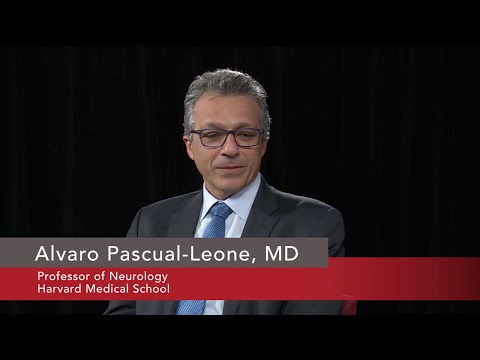
Forgot a name? Misplaced your keys? Taking longer to find the right words? Don’t panic. There’s plenty you can do to improve your memory. You’re probably expecting us to reveal 7 little known and newly discovered herbs from the forests of the Amazon, the peaks of the Himalayas and the Arctic tundra. No such luck. Despite Americans spending hundreds of millions of dollars a year on Ginkgo Biloba, Ashwagandha, Periwinkle, Bacopa, Vitamin B’s, Omega 3’s and memory boosting supplement cocktails, there is very little scientific evidence they actually work. [1] Instead, we’re going to offer you 7 completely natural memory boosters, backed up by scientific research. It may take a little more effort than a magic memory pill, but the benefits will transcend your memory and improve your overall quality of life as well, making you more fit, energetic, happy and sharp. How Do We Remember? The first process in remembering is creating a memory. This is where our brain sends a signal, associated with a thought, event or piece of information our mind is processing, over our brains neural pathways, called synapses. Think of our neural pathways like roads and information like trucks. The better the roads, the more trucks can be driven. The second step in remembering is memory consolidation. Consolidation is when the brain takes that thought, event or piece of information and actually stores it in the brain. So now we’re talking about taking delivery of the trucks and storing its contents in the warehouse. Consolidation helps us store information and label it properly, so its organized and easy to retrieve when needed. The last step is memory retrieval. That’s the step whereby we try to retrieve the information stored in our brains. You know when you have the name of someone on the tip […]
5 Ways to Boost Your Energy
Powering through your morning and hit a brick wall with a million things left to do? Here are 5 Ways to Boost Your Energy so you can crush your day. This post was sponsored by Avitae Caffeinated Water as part of an Influencer Activation for Influence Central and all opinions expressed in my post are my own. Who else has ever been charging through their morning and suddenly, almost out of nowhere fatigue hits? Sometimes the culprit is lack of sleep. Sometimes it can be stress or mental exhaustion from trying to juggle kids, business, and a home. I don’t know about you, but there are days when I just want to shut the door, crawl back in bed, and curl up with a silly novel. For most of us, throwing in the towel isn’t an option. We have work responsibilities, kids to keep alive, and haven’t yet been gifted with one of those fairies that magically cleans the house. For those days when you are dragging, here are some ways to boost your energy. 5 Ways to Boost Your Energy Caffeine This one might seem obvious, but it can’t be overlooked as one of the best ways to boost your energy on those mornings that you are dragging. Caffeine is a natural stimulant that can help perk up your brain and body for up to five hours. Caffeine has other benefits including boosting metabolism and improving overall mood. I used to drink coffee all day long, but ask I’ve gotten older I now am only able to tolerate one cup before my stomach starts complaining. That doesn’t mean I’ve given up the natural boost I get from caffeine though! And nope, I am not reaching for sugary caffeine drinks either. These days, I am loving Avitae Caffeinated Water […]
7 Adaptogens to Give You the Brain Boost You Need
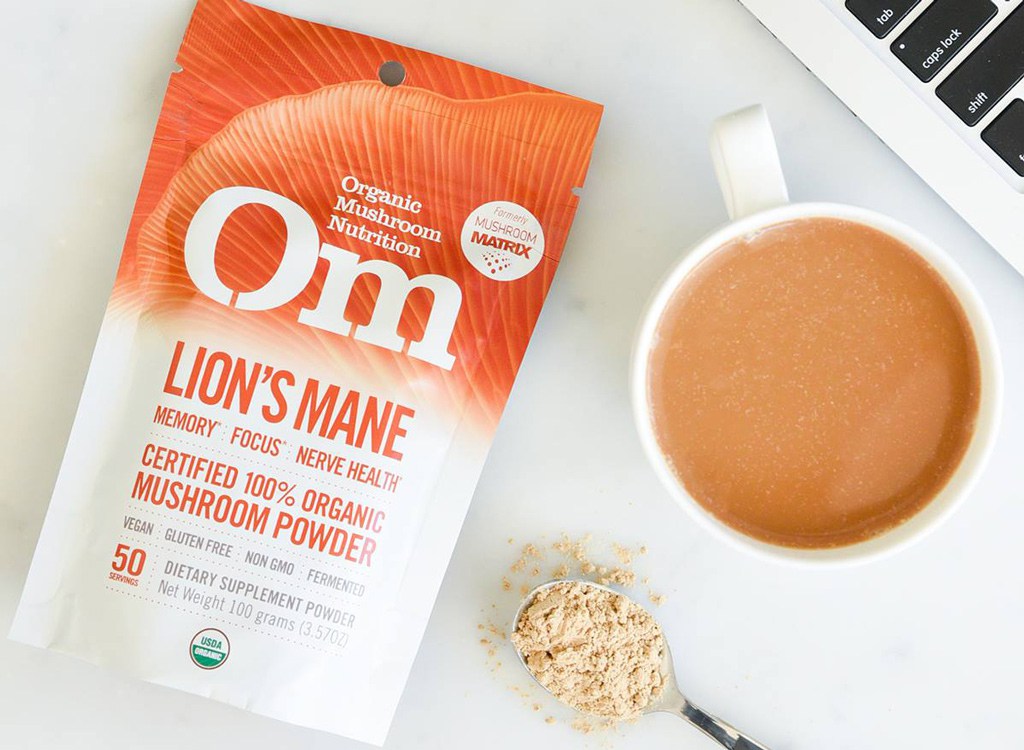
Om, Organic Mushroom Nutrition/Facebook Adaptogens — one of the hottest buzzwords around — have been popping up in everything from nutrient-dense smoothies to skin care products. And while they’ve been used for thousands of years in Ayurveda, only now are these miraculous plants starting to permeate modern medicinal practices. What are adaptogens? Adaptogens are a specific class of herbs and mushrooms that help your body reach equilibrium, Stepfanie Romine, health coach and author of Cooking With Healing Mushrooms: 150 Delicious Adaptogen-Rich Recipes that Boost Immunity, Reduce Inflammation and Promote Whole Body Health , tells us. Adaptogens work by supporting the endocrine system: they alleviate stimuli to stress, ultimately striking a balance between stress and normalization, allowing the body to naturally achieve homeostasis. When it comes to brain health, one class of adaptogens do the job best: Nootropics. These cognitive-boosting plants work on the hypothalamus, your brain’s control center, to eliminate stress and improve cognition and memory. Thinking about giving them a go? Before you incorporate anything new into your diet, be sure to consult your doctor to make sure it doesn’t contraindicate any medications you’re taking. Find out how your brain health could benefit from our seven adaptogens below. Shutterstock Reishi is considered the mushroom of immortality, Pedram Shojai, a Doctor of Oriental Medicine and author of The Urban Monk tells us. “It boosts the immune system, has anti-cancer properties, and helps offset depression. It’s a powerful energy booster and can be included in soups, teas, or taken in powder form. It helps you focus and stay calm—a great combo.” For an easy add-in to smoothies, parfaits, and energy bites, try Om’s organic reishi powder. Buy Om’s Organic Reishi Powder on Amazon . Shutterstock Shojai describes ginseng as the “emperor” of adaptogenic herbs. “It is a strong antioxidant and […]
Herbs that Boost Memory
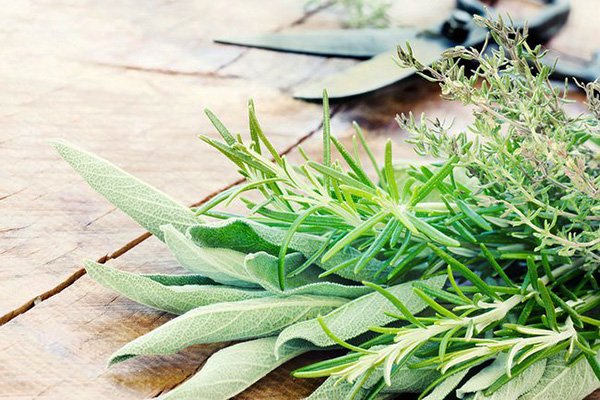
Most people assume that memory loss cannot be stopped especially as we age, but this is not necessarily true. Some of us experience lapses in memory from time to time which can be frustrating especially when we need to recall an important event or task. There are many factors that can cause this issue to arise such as constant consumption of alcoholic beverages, taking recreational drugs, and nutritional deficiency just to name a few. How then will you be able to rectify this problem? The good news is that improving your memory can start with using the right kinds of herbs. Going natural is a much better approach to enhancing your memory as there is little to no side effects associated with it. So which herbs are good for your memory? Here are a few that you should take note of. Ginseng This herb refers to the various plants that are part of the Panax family. Although there are several types of ginseng available, when it comes to boosting your memory, Asian Ginseng and American ginseng are the best options to consider. One reason behind this is that these herbs can boost spatial memory by activating the neuronal activity located in the hippocampus. Turmeric Another herb that has been found to be good for enhancing one’s memory is turmeric. We often use this particular herb when cooking curry, but it is not just for turning this dish yellow. There are several benefits associated with turmeric such as fighting off inflammation and enhancing blood flow hence the brain tends to function better with it. Ginkgo Biloba You should also use ginkgo biloba because it is effective in fighting off inflammation while boosting the amount of blood flowing through your brain. There are studies that show that the use of Ginkgo […]
COOL science: How to bring out extraordinary abilities hidden in your brain

( Natural News ) The human brain is hiding superpowers within its left anterior temporal lobe. Near-perfect memory, echolocation, “sight” beyond sight, and something that might have inspired the idea of telekinesis can be accessed through easy means. An article in Psychology Today covered how you can tap these dormant mental powers. Swift and accurate memorization The first ability involves memory. Most people will memorize a set of words by repeating them multiple times. This rote method takes a lot of time to pull off. Furthermore, recency and primacy effects on verbal memory will often make it difficult to remember information in the middle of a series. The alternate means to remember those words require using our visual memory. The visual portions of the brain can store far more information at a faster rate. Think of how you can remember a lot of details regarding your room. You can leverage that mental memory by thinking of strong images representing the words you need to remember. For example, when you see the word “ladybug,” think of the most vivid memory you have of the insect. When you are asked to remember this later on, it will be much easier. (Related: The brain-boosting benefits of high-quality olive oil .) Tiny, precise muscle movements The next ability is quite possibly the inspiration for telekinesis. Your unconscious thoughts can cause very slight contractions in your muscles. These fine movements can move objects that are in contact with your muscles, such as a coffee cup dangling from your hand. The reason for this unconscious movement is implicit memory. Human brains automatically store information such as the muscle groups responsible for certain kinds of movement. Mother Nature’s micronutrient secret : Organic Broccoli Sprout Capsules now available, delivering 280mg of high-density nutrition, including the extraordinary "sulforaphane" […]
